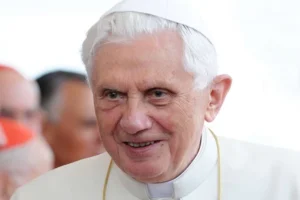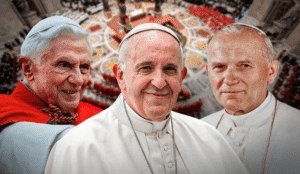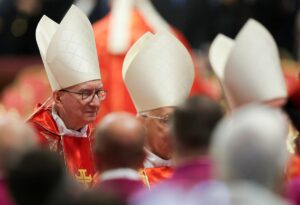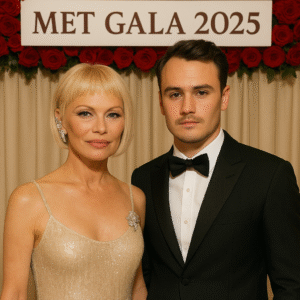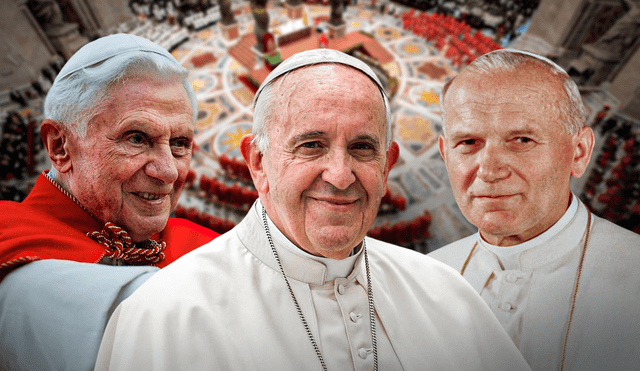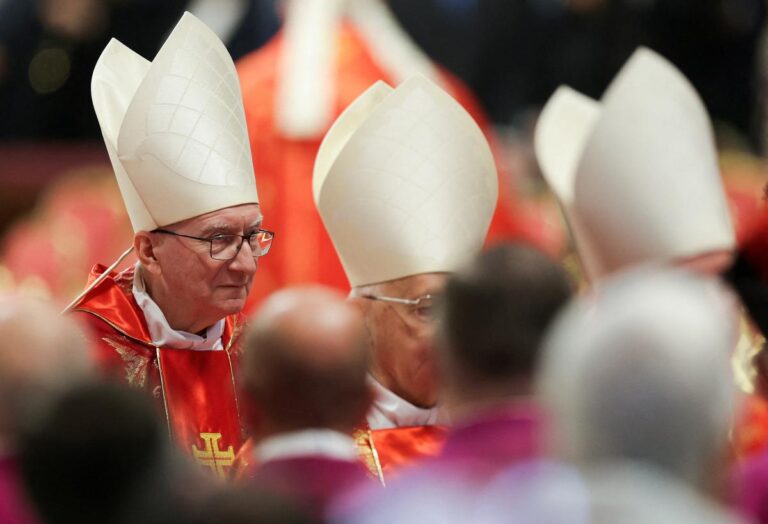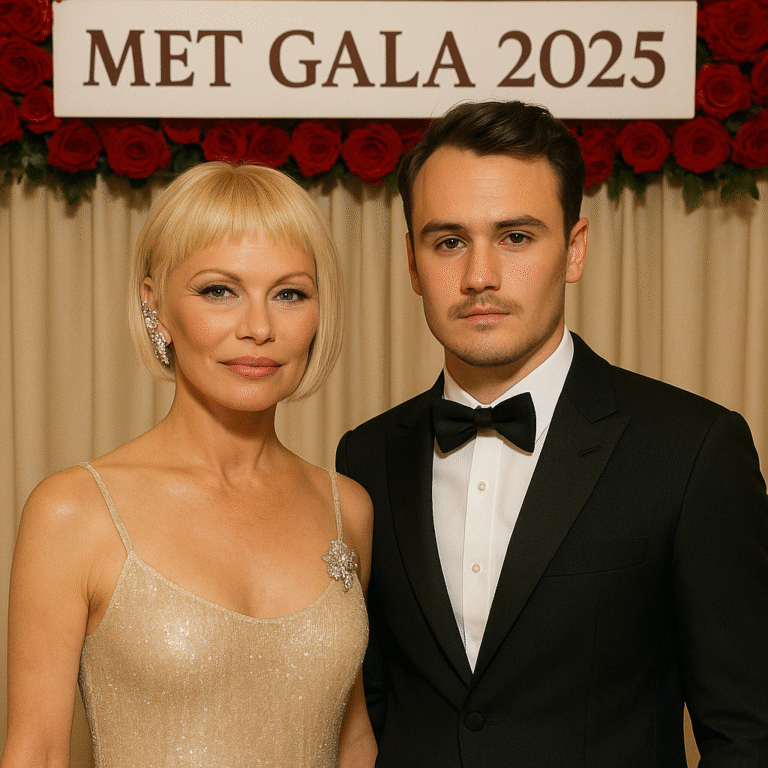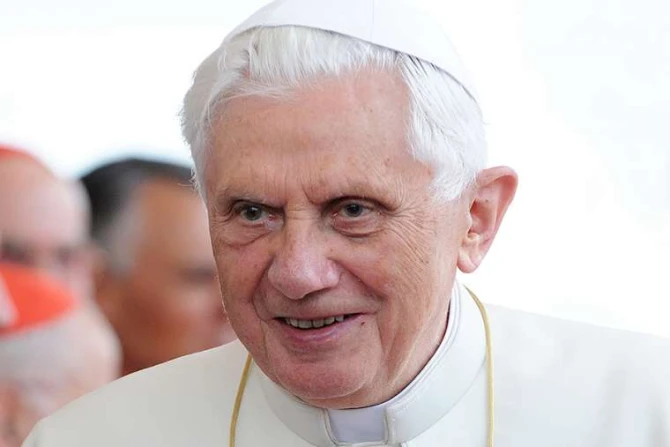
Pope Benedict XVI greets the faithful at his general audience in St. Peter's Square at the Vatican Nov. 21, 2007. Pope Benedict died Dec. 31, 2022, at the age of 95 in his residence at the Vatican. (CNS photo/Paul Haring)12🕊️ Introduction
Pope Benedict XVI, born Joseph Ratzinger, was a transformative leader of the Catholic Church, known for his deep theological insights, intellectual prowess, and, perhaps most notably, his historic decision to resign from the papacy in 2013. His papacy, spanning from 2005 to 2013, left an indelible mark on the Church and the world, reshaping Catholicism in the 21st century.
📣 The Life and Legacy of Pope Benedict XVI
Born on April 16, 1927, in Marktl am Inn, Germany, Joseph Ratzinger was an acclaimed theologian before ascending to the papacy. His scholarly background earned him a place among the most respected thinkers in modern Catholicism. Known for his sharp intellect and commitment to Catholic tradition, Benedict XVI played a key role in shaping Church doctrine and responding to global social and political issues.
The Papacy of Benedict XVI
Pope Benedict XVI’s papacy was marked by a strong emphasis on doctrinal clarity, reaffirming traditional Catholic teachings while addressing the challenges of a rapidly changing world. Some of the key aspects of his papacy included:
- Faith and Reason: Benedict XVI stressed the importance of the relationship between faith and reason, calling for dialogue between the Church and the modern world.
- Theological Contributions: Known for his writings, including his books on Jesus of Nazareth, Benedict’s theological works left a lasting impact on Catholic thought.
- Interfaith Dialogue: He worked diligently to improve relations with Judaism, Islam, and other Christian denominations, focusing on fostering peace and understanding.
🌍 Pope Benedict XVI’s Historic Resignation
One of the most defining moments of Benedict XVI’s papacy came in 2013, when, at the age of 85, he announced his decision to resign from the papacy, citing health reasons and the physical demands of the role. This unprecedented resignation—marking the first papal abdication in over 600 years—shocked the world and led to the election of Pope Francis as his successor.
A Humble Departure
Pope Benedict XVI’s decision to step down was groundbreaking. His resignation showed a level of humility rarely seen in the history of the papacy, acknowledging his limitations and paving the way for a younger, more physically capable leader to guide the Church.
🧭 Life After the Papacy
Following his resignation, Pope Benedict XVI took the title of Pope Emeritus and retired to the Mater Ecclesiae Monastery in the Vatican Gardens. There, he spent his days in prayer and reflection, occasionally offering guidance to Pope Francis but largely remaining out of the public spotlight.
Despite his quieter life after stepping down, Pope Benedict XVI continued to be an influential figure, particularly through his written works and theological reflections. His ongoing presence as Pope Emeritus offered a unique perspective on the Church’s leadership, especially as Pope Francis continued to guide the Church in a new direction.
🗣️ The End of an Era
Pope Benedict XVI passed away on December 31, 2022, leaving behind a powerful theological and spiritual legacy. His death marked the end of an era for the Church, with millions of faithful around the world mourning his passing. His funeral was a moment of reflection for Catholics, honoring a man who had led with both intellectual rigor and deep devotion.
His legacy lives on through his theological writings, his work in interfaith relations, and his humble resignation that reshaped the future of the papacy.

